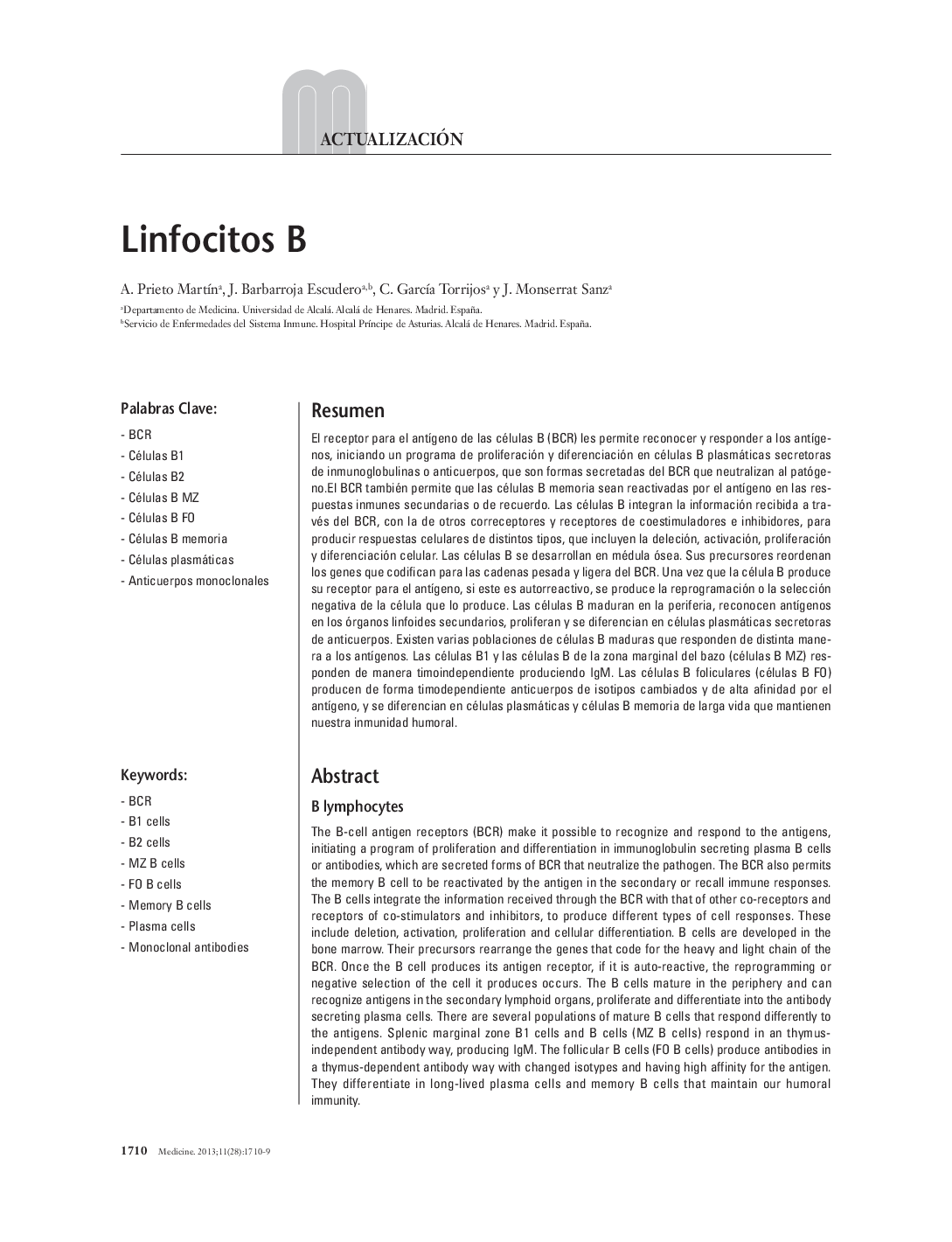| Article ID | Journal | Published Year | Pages | File Type |
|---|---|---|---|---|
| 3805991 | Medicine - Programa de Formación Médica Continuada Acreditado | 2013 | 10 Pages |
Abstract
The B-cell antigen receptors (BCR) make it possible to recognize and respond to the antigens, initiating a program of proliferation and differentiation in immunoglobulin secreting plasma B cells or antibodies, which are secreted forms of BCR that neutralize the pathogen. The BCR also permits the memory B cell to be reactivated by the antigen in the secondary or recall immune responses. The B cells integrate the information received through the BCR with that of other co-receptors and receptors of co-stimulators and inhibitors, to produce different types of cell responses. These include deletion, activation, proliferation and cellular differentiation. B cells are developed in the bone marrow. Their precursors rearrange the genes that code for the heavy and light chain of the BCR. Once the B cell produces its antigen receptor, if it is auto-reactive, the reprogramming or negative selection of the cell it produces occurs. The B cells mature in the periphery and can recognize antigens in the secondary lymphoid organs, proliferate and differentiate into the antibody secreting plasma cells. There are several populations of mature B cells that respond differently to the antigens. Splenic marginal zone B1 cells and B cells (MZ B cells) respond in an thymus-independent antibody way, producing IgM. The follicular B cells (FO B cells) produce antibodies in a thymus-dependent antibody way with changed isotypes and having high affinity for the antigen. They differentiate in long-lived plasma cells and memory B cells that maintain our humoral immunity.
Keywords
Related Topics
Health Sciences
Medicine and Dentistry
Medicine and Dentistry (General)
Authors
A. Prieto MartÃn, J. Barbarroja Escudero, C. GarcÃa Torrijos, J. Monserrat Sanz,
